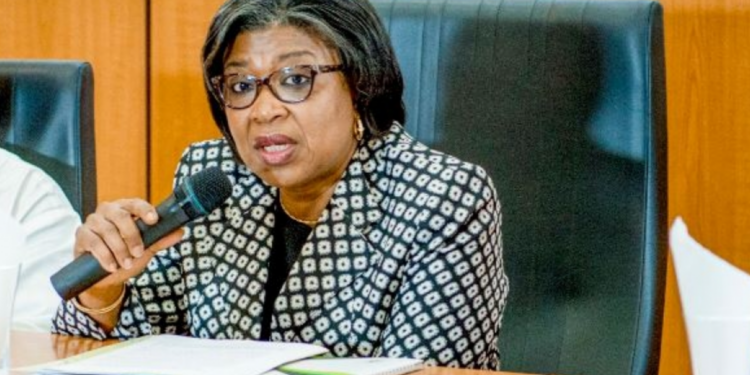The sharp increase in Nigeria’s public debt, coupled with the naira’s continued depreciation and growing reliance on domestic borrowing, has raised questions about Nigeria’s debt sustainability.
Abuja – Nigeria’s total public debt rose to N142.3 trillion as of September 30, 2024, reflecting an increase of N8.02 trillion (5.97%) compared to N134.3 trillion in June 2024. The Debt Management Office (DMO) disclosed this in its latest report released on Tuesday.
The surge in Nigeria’s public debt was primarily attributed to increased domestic borrowing and the depreciation of the naira, which significantly impacted external debt when converted to local currency.
External Debt Impacted by Naira Depreciation
In dollar terms, Nigeria’s external debt grew slightly by 0.29%, rising from $42.90 billion in June to $43.03 billion in September. However, in naira terms, the external debt skyrocketed by 9.22%, increasing from N63.07 trillion to N68.89 trillion.
The jump in the naira equivalent of external debt was largely driven by the local currency’s depreciation, as the exchange rate weakened from N1,470.19/$ in June to N1,601.03/$ by the end of September.
Domestic Debt Grows Despite Dollar Decline
Domestic debt also saw contrasting trends, declining by 5.34% in dollar terms from $48.45 billion in June to $45.87 billion in September. However, in naira terms, domestic debt rose by 3.10%, climbing from N71.22 trillion to N73.43 trillion.
The Federal Government accounted for the bulk of domestic debt, with its share rising from N66.96 trillion in June to N69.22 trillion in September. In contrast, domestic debt owed by states and the Federal Capital Territory (FCT) slightly declined, dropping from N4.27 trillion to N4.21 trillion.
Federal Government bonds remained the largest component of domestic debt, growing by 4.47% to N54.65 trillion in September, up from N52.32 trillion in June. Bonds now account for 78.95% of total domestic debt, up from 78.13% in the previous quarter.

Key Components of Domestic Debt
- Nigerian Treasury Bills: Declined marginally by 0.66% to N11.73 trillion, aligning with efforts to manage short-term debt and mitigate rollover risks.
- Promissory Notes: Increased by 5.80%, rising from N1.67 trillion to N1.77 trillion.
- FGN Sukuk: Dropped by 9.14% to N992.56 billion, reflecting reduced activity in infrastructure funding.
- FGN Savings Bonds: Surged by 16.11% to N64.09 billion, driven by growing interest from retail investors.
- Green Bonds: Remained unchanged at N15 billion, contributing just 0.02% to the domestic debt stock.
External Debt Analysis
As of September 2024, Nigeria’s external debt stood at $43.03 billion, with the following breakdown:
- Multilateral Debt: Grew by 0.67% to $21.77 billion, accounting for 50.60% of external debt. Disbursements from institutions like the World Bank added $513.06 million, increasing the International Development Association portfolio to $16.84 billion.
- Bilateral Debt: Dropped slightly by 1.33%, from $5.89 billion to $5.81 billion, with Chinese loans declining by $99.98 million. Obligations to France and Germany remained unchanged.
- Commercial Debt: Largely unchanged at $15.12 billion, representing 35.14% of external debt.
Nigeria Returns to International Capital Markets
In December 2024, Nigeria raised $2.2 billion through its Eurobond auction, marking its re-entry into international capital markets. The funds were raised through two bonds:
- A 6.5-year $700 million bond at 9.625%.
- A 10-year $1.5 billion bond at 10.375%.
Despite total subscriptions exceeding $9 billion, only $2.2 billion was allocated. The proceeds are expected to support the 2024 budget amid revenue shortfalls and mounting public spending pressures.
Debt Sustainability Concerns
The sharp increase in Nigeria’s public debt, coupled with the naira’s continued depreciation and growing reliance on domestic borrowing, has raised questions about Nigeria’s debt sustainability. With additional Eurobond proceeds expected to further inflate external debt in Q4 2024, experts warn of mounting fiscal challenges in the coming quarters.










Join our Channel...